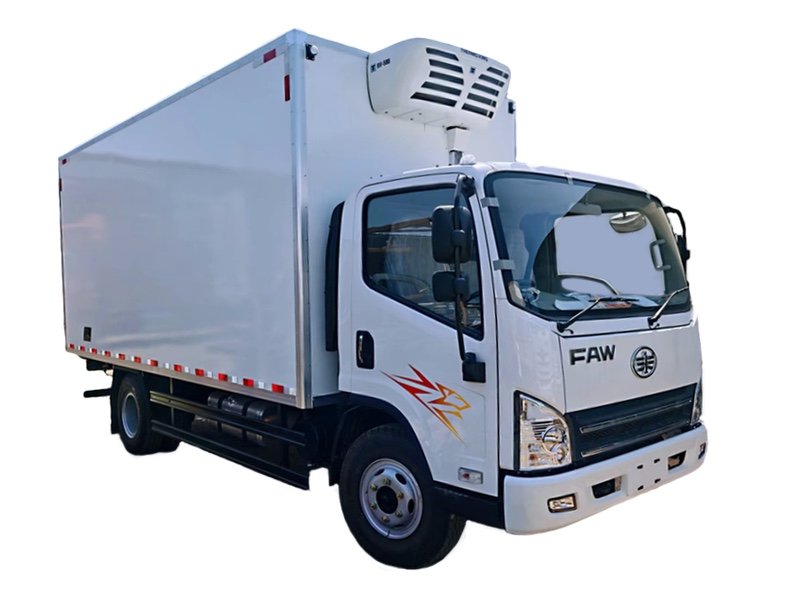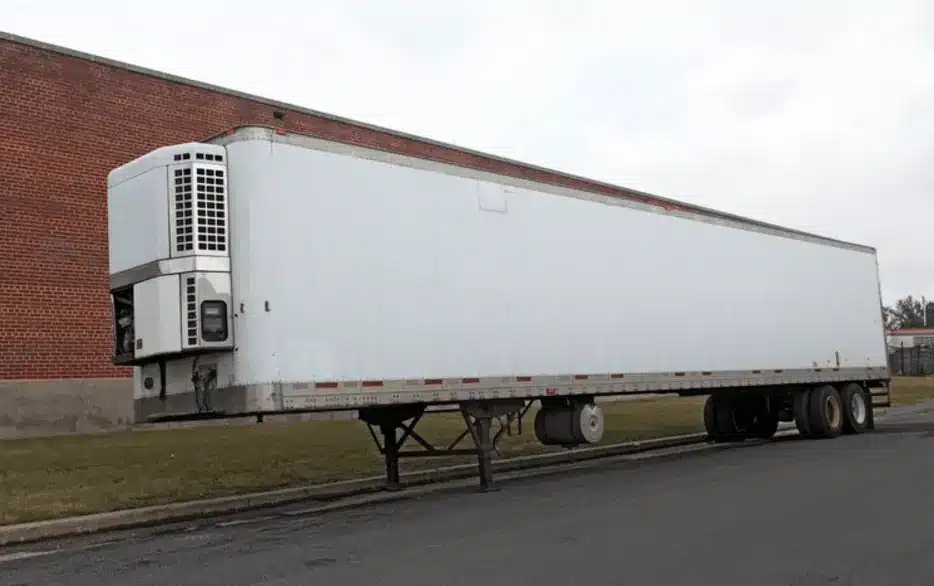Refrigerated Transportation Thermo King: Keeping Product Fresh en route
Refrigerated Transportation Thermo King: Keeping Product Fresh en route
Blog Article
Leading Innovations in Transport Refrigeration: Enhancing Performance and Safety
The landscape of transport refrigeration is undertaking significant transformation, driven by innovations intended at enhancing both performance and safety. As these innovations proceed to advance, it is necessary to explore their implications on functional techniques and regulative conformity, triggering a more detailed examination of exactly how they improve the future of transportation refrigeration.
Smart Temperature Monitoring Systems
In the world of transport refrigeration, wise temperature level tracking systems have actually arised as an essential technology for ensuring the honesty of temperature-sensitive goods. These advanced systems utilize Net of Things (IoT) technology to offer real-time information on temperature fluctuations, allowing drivers to keep optimum problems throughout the supply chain. By continually tracking the temperature level of chilled containers and lorries, business can promptly determine discrepancies that may jeopardize product quality.

Furthermore, wise tracking systems typically include automated informs and notifications, allowing stakeholders to react immediately to any type of possible concerns. This positive technique not only lessens the threat of perishing but additionally improves conformity with regulatory criteria controling food safety and pharmaceutical transportation.
The assimilation of information analytics within these systems also promotes predictive maintenance, helping operators to predict potential tools failures before they occur. This ability reduces downtime and maximizes functional effectiveness, inevitably bring about set you back savings.
Eco-Friendly Refrigerants
Smart temperature tracking systems play a vital role in keeping product high quality, but the performance of transport refrigeration also pivots on the option of cooling agents utilized. As ecological problems climb, the shift in the direction of environmentally friendly refrigerants has actually ended up being necessary. Traditional refrigerants, such as hydrofluorocarbons (HFCs), are notorious for their high Global Warming Potential (GWP), adding dramatically to environment change. In comparison, arising alternatives like hydrocarbon-based cooling agents and hydrofluoroolefins (HFOs) existing lower GWP alternatives, providing both performance and sustainability.
These environmentally friendly cooling agents not just decrease ecological influence but also align with global policies focused on eliminating unsafe substances. Their adoption can lead to enhanced energy efficiency, ultimately decreasing operating expense for transportation refrigeration systems. Moreover, using natural refrigerants, such as ammonia and co2, has actually obtained grip as a result of their superb thermodynamic residential properties and reduced environmental impact.
Purchasing environmentally friendly refrigerants is not just a regulative compliance procedure; it stands for a tactical decision that improves brand credibility and promotes consumer loyalty. thermo king truck refrigeration. By prioritizing lasting methods, companies can add to a greener future while making sure the stability of transported items
Advanced Insulation Materials
Making use of sophisticated insulation materials is essential for maximizing transport refrigeration systems, as they dramatically improve energy performance and maintain regular temperature control. Traditional insulation approaches frequently fall brief in stopping thermal transfer, causing enhanced power usage and varying temperature levels within chilled areas.
Emerging products such as vacuum protected panels (VIPs) and aerogels use premium thermal resistance, permitting thinner accounts without endangering performance. VIPs, for example, make use of a vacuum layer to minimize conductive and convective warmth transfer, making them perfect find more information for space-constrained applications. Aerogels, recognized for their lightweight and permeable structure, supply extraordinary insulation while significantly decreasing total system weight.
Moreover, incorporating phase adjustment products (PCMs) into insulation systems can further maintain temperatures throughout transportation. These products take in and release thermal power, effectively buffering versus exterior temperature level variations.
The combination of these advanced insulation materials not only minimizes the functional prices linked with power intake but also extends the service life of temperature-sensitive goods. As the transport refrigeration industry proceeds to progress, the fostering of ingenious insulation innovations will certainly be essential in boosting both performance and safety and security in cooled transportation.
Automated Path Optimization
The these details effectiveness of transport refrigeration systems is considerably improved with automated route optimization, which leverages advanced algorithms and real-time information to identify the most reliable courses for shipment. By evaluating various factors such as website traffic patterns, climate problems, and shipment windows, these systems can significantly lower traveling time and fuel consumption.
Automated course optimization lessens human error and subjective decision-making, which can result in inefficiencies. This technology makes it possible for fleet supervisors to designate resources better, making sure that refrigerated goods keep their needed temperature level throughout the trip. By optimizing courses, companies can additionally improve customer complete satisfaction through timely distributions.
Furthermore, automated systems can adjust to unexpected circumstances, such as roadway closures or unexpected website traffic spikes, permitting for vibrant rerouting. This flexibility not just safeguards the integrity of temperature-sensitive items however likewise adds to overall functional efficiency.
Carrying out automated route optimization can cause significant expense savings while decreasing the carbon footprint associated with transport. As services increasingly focus on sustainability, this development stands apart as a vital component in modern transportation refrigeration, lining up functional goals with environmental duty. Ultimately, automated path optimization represents a substantial advancement in the mission for effectiveness and safety in transportation refrigeration.

Real-Time Data Analytics
Automated course optimization significantly gain from the combination of real-time data analytics, which provides essential insights into the performance of transportation refrigeration systems. By making use of real-time data, transport operators can keep track of temperature variations and devices performance, making sure that perishable goods are maintained within needed parameters throughout transit. This aggressive technique not only boosts the top quality of the delivered products however also minimizes the danger of perishing and loss.

In enhancement to boosting performance, real-time analytics improves safety and security by making certain conformity with governing criteria for temperature control. This not just safeguards public wellness however also fortifies a company's online reputation - thermo king truck refrigeration units. As the transport refrigeration industry develops, the combination of real-time information analytics becomes a cornerstone for driving innovation, sustainability, and functional quality
Final Thought
In verdict, the innovations in transport refrigeration substantially enhance both effectiveness and security within the industry. Smart temperature monitoring systems and real-time information analytics supply important oversight, while environmentally friendly cooling agents and progressed insulation products contribute to sustainability and energy performance. Furthermore, automated path optimization algorithms not just lower travel time however additionally minimize environmental influence. Collectively, these advancements stand for a vital advancement in transport refrigeration, making certain compliance with regulative standards and promoting a greener future.
The landscape of transportation refrigeration is going through significant makeover, driven by developments aimed at enhancing both effectiveness and safety and security.Smart temperature monitoring systems play a vital role in keeping item quality, however the effectiveness of transport refrigeration additionally hinges on the option of cooling agents used. Their fostering can lead to boosted energy efficiency, eventually decreasing operating prices for transport refrigeration systems. Inevitably, automated course optimization represents a significant improvement in the quest for effectiveness and security in transportation refrigeration.
In final thought, the advancements in transportation refrigeration substantially boost both efficiency and security within the market.
Report this page